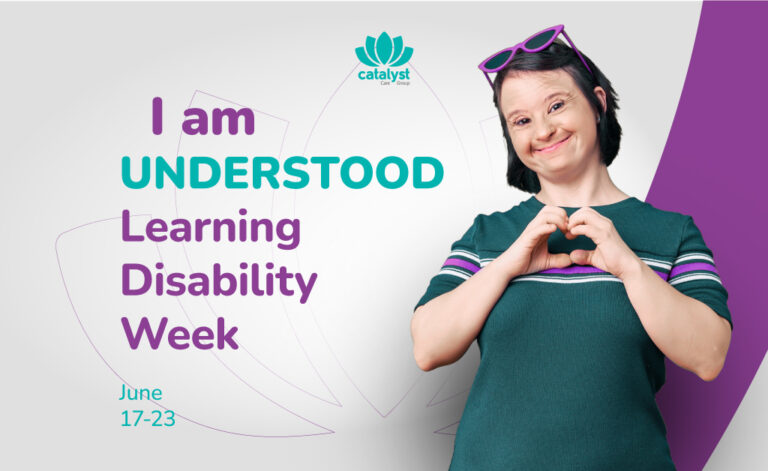In many cases, children may go undiagnosed until they’re at primary or secondary school, but sometimes it can go unnoticed until adulthood. Consequently, this can pose a range of barriers at school and workplace, leading to reduced educational and employment opportunities.
Through intensive work and research, we discovered there are significantly low rates of employment and postsecondary education for young people with autism. This is unacceptable, and we must continue to strive to build an inclusive and diverse world, providing equal human rights for everyone.
What can we do?
Barriers to Early Diagnosis and Intervention
Autism can be diagnosed within the first 36 months of life. However, many children and adults receive the diagnosis after starting their education.
There are several key points we need to have in mind regarding autism diagnosis:
- Some children may not show obvious autism signs until adolescence.
- Autism diagnosis describes a spectrum of unique abilities, challenges and needs.
- Timely autism diagnosis empowers children and adults to thrive and reach their full potential.
- Children may feel relieved after receiving the diagnosis, while others need time to embrace it and adapt.
A late autism diagnosis is often due to a lack of autism education in primary care, but also due to the diversity of features and characteristics every individual possesses. This is particularly the case with high-functioning autism, as the symptoms are often not clearly visible until later in life.
Similarly, some autistic people tend to hide their signs, known as autism masking, and this may pose additional challenges in establishing a correct autism spectrum disorder diagnosis.
According to The National Autistic Society, in 2021, a quarter of parents waited more than three years to receive the correct diagnosis for their child. Meanwhile, many autistic children disengage from school, need more educational provisions, or start doing exams that are not accommodated to their needs.
Challenges from Late Autism Diagnosis
A late autism diagnosis often comes with a range of emotional, behavioural and social challenges across childhood, adolescence and adulthood. This is because a new primary or secondary school or a working environment may overwhelm the person. These difficulties may followed by behaviours of concern that are often misunderstood as ‘difficult’ or ‘misbehaved’.
For example, one in five parents reported that their child had been excluded from school on a temporary or permanent basis, showcasing how society and education are failing to meet the needs of autistic children and the importance of a child’s autism diagnosis. Despite the growing awareness about autism and neurodiversity, health and social care settings need more understanding and knowledge about this unique spectrum of challenges and abilities.
School-Based Challenges
With extensive progress over the past few decades, mainstream education still lacks appropriately trained staff in recognising autism in early childhood, especially in primary school settings. This means that the educational staff are not appropriately trained to recognise differences in behaviour and the learning needs of a diverse child from the rest of the group.
For example, when a child is experiencing a challenge with social interaction and has difficulty understanding social cues or following instructions, this requires further observation and accommodation of the learning program based on the child’s development and needs.
In the 2022 Autism Review campaign, the government announced the plan to increase the funding for students with neurodivergent educational needs by more than 50% by 2024. This includes supporting teacher training and creating new provisions. However, today’s education system is still not built for neurodiverse children, lacking appropriate staff training and resources.
A University of Birmingham survey found that autistic students are twice as likely to be excluded from school than their neurotypical peers. Additionally, in the past five years, every region in England has noted an increase of 45%-100% in the number of school exclusions of children and adolescents with autism spectrum disorder. This limits the access to education for many students, resulting in a decrease in equal opportunities.
Workplace Challenges
Based on a study of primary-care records in the UK, there are between 150,000 and 500,000 people aged 20-49 with undiagnosed autism. Living without a diagnosis for so long may have consequences, particularly for people’s mental health and overall quality of life. The lack of proper diagnosis often leads to a lack of adaptations and support that people might need.
Autism spectrum disorders often result in difficulties with social interaction and communication in the workplace. These difficulties can affect a person’s ability to navigate job interviews, build relationships with co-workers, and adjust to workplace culture. This can become a real struggle if the person doesn’t know they’re on the autistic spectrum, as they might feel unable to fit in.
Many people on the autism spectrum cope with sensory sensitivities often triggered by external factors such as light, noise or specific textures. These challenges can make it difficult for people to work in environments that might be over-stimulating or overwhelming, especially for late-diagnosed autistic people.
Limited access to support and accommodations at the workplace also has a substantial impact on the work performance of people with a late autism diagnosis. This may also affect the employer as they won’t be aware of the need for creating a more inclusive workplace adapted to the needs of neurodiverse people.
People with autism have substantially low employment rates, based on government statistics. Of 700,000 autistic people in the UK, only 21% are in a form of paid employment, compared to 80% of neurotypicals and 47% of people with any disability.

Missing the Early Signs
Primary healthcare providers perform testing for autism using a CHAT (Checklist for Autism in Toddlers) screening tool for the ages between 18 and 24 months. However, many healthcare professionals may still miss the early signs of autism.
Although the first characteristics of autism often appear as emotional, behavioural and social difficulties (EBSDs), these symptoms may sometimes be subtle or may overlap with other developmental disorders. For example, speech and language delays may be associated with learning differences, global development delays or hearing impairments.
The complexity of these challenges imposes the need to implement ongoing education and training for healthcare providers and educational staff on the early signs and symptoms of autism. By investing in training and awareness in health, social and educational settings, we empower people to embrace diversity and foster the unique abilities, skills and impact that neurodivergent people have.
Importance of Timely Diagnosis
Timely autism diagnosis is critical for children to receive early intervention, develop skills, and navigate sensory experiences and behaviours, which can significantly improve their quality of life and help them reach their full potential. Timely intervention can make a massive difference in a child’s life and increase the chances for positive outcomes, but it also reduces the risks of social exclusion and the use of restrictive strategies that might lead to unnecessary hospital admissions.
Inclusion in The Workplace and School Settings
As a community, we have made significant progress since the 2009 Autism Act. Although much has changed over the past decade, and we’ve never had a better understanding of neurological differences like autism, more needs to be done. Despite the efforts, people still wait longer for autism assessments, and the number of autism-educated staff at mainstream education is still low.
In April 2023, the government launched a new review designed to increase awareness and boost employment opportunities for autistic people. The government’s initiative aims to close the employment gaps and support employers to recruit and retain autistic people. This can help employers understand the power and true potential of a neurodiverse workforce.
However, to transform the bigger picture, we need to understand that the change starts with every one of us. Dismantling social stigma and embracing differences is a significant step towards creating a multi-functional and diverse community with equal access to care, education and employment.
As an organisation, we are firm neurodiversity advocates, with the concept of humanity and equality as a solid foundation for our existence. Creating a sustainable health and social care sector with equal rights to education and employment for everyone helps us deliver life-changing solutions to complex challenges. Supporting the Transforming Care Agenda, we strongly believe in a diverse workforce, embracing and leveraging the unique differences of our Catalyst Family members. For more information, read our success story about autism in the workplace.
Get in touch with us today if you need any additional information about our services and our work as a healthcare organisation.













